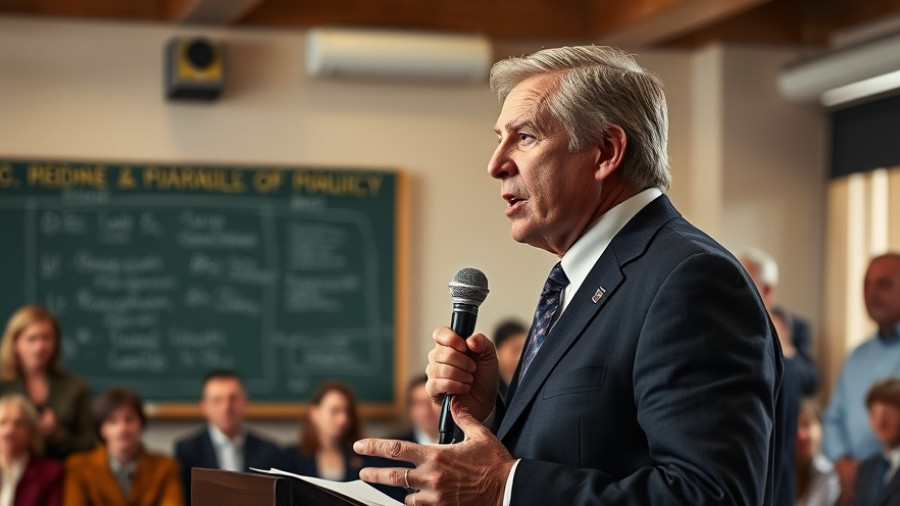
The Unfolding Political Landscape in Ivory Coast
The recent preliminary results from the presidential elections in Ivory Coast showcase a familiar narrative that extends the grip of long-term President Alassane Ouattara on power. At 83 years old, Ouattara is on the precipice of starting a controversial fourth term, stirring discussions on political stability, governance, and the future of democracy in this West African nation. As results trickled in from the Electoral Commission—announced late Sunday evening—the sentiment among many voters appeared predictably aligned with the ruling party.
In the video 'Ivory Coast: preliminary election results point to another term for Ouattara,' we see a deeper dive into the electoral landscape, prompting us to analyze the broader implications of these results.
Voter Participation: What Does It Mean?
Initial estimates indicate that voter participation hovered around 50%, a figure alarmingly low for a pivotal election. Political analysts attribute this decline to the exclusion of significant opposition candidates, who were barred from running against Ouattara. Such a political landscape raises questions on the legitimacy of the electoral process and the implications for democratic engagement in Ivory Coast.
Tensions and Protests: A Recurring Theme
Leading up to the elections, the political atmosphere was fraught with tension as citizens protested the perceived unfairness of the electoral landscape. The absence of credible opposition led not only to disenfranchisement but to an environment where demonstrations against the government proliferated. While election day itself was marked by relative calm, there were reports of clashes at approximately 2% of voting stations, highlighting the underlying frustrations among the populace and the challenges inherent in governing without broad support.
Historical Context: Lessons from the Past
To fully comprehend the implications of Ouattara's impending fourth term, one must consider the historical context of Ivorian politics. After years of civil strife, Ouattara's administration emerged amidst hope for stability and economic development. However, as the years progressed, growing discontent regarding governance and accountability questions began to erode public confidence. This election cycle may be the culmination of those longstanding issues, reflecting a population grappling with a desire for change balanced against the comfort of familiarity.
The Role of the Electoral Commission
The electoral body’s role in this election has come under the microscope, with critiques concerning its impartiality and commitment to fostering a fair democratic process. As results continue to be announced, the transparency of the process will be crucial for establishing legitimacy, both at home and within the international community. For a country that seeks economic partnerships and foreign investment, perceptions of corruption and mismanagement can deter potential investors.
Future Implications for Governance
If these preliminary results are upheld, Ouattara’s continued presidency could imply a deleterious impact on political plurality in the country. The implications extend beyond Ivory Coast, serving as a case study for other nations within the region grappling with similar issues of governance, societal unrest, and democratic processes. The situation underscores the need for robust civic engagement to ensure that the voices of the populace are heard and considered in shaping governance.
The Global Perspective: International Response
International observers are closely monitoring the situation, with responses likely to vary based on geopolitical interests. As Ivory Coast continues to navigate the complexities of leadership and governance, the global community's response may be instrumental in shaping the future. For now, the eyes of many from across Africa and beyond are trained on the developments that lie ahead, reflecting a collective desire for stability and progress.
Actionable Insights for Professionals
For professionals engaged in the fields of political science, international relations, or economic development, the ongoing situation in Ivory Coast presents several critical insights. Understanding the dynamics of voter participation, the significance of opposition in governance, and the role of civil society are all vital components that can inform future strategies. Equipping oneself with knowledge on these issues can enhance professional practices and encourage proactive engagement with global political narratives.
As we've analyzed the key points highlighted in Ivory Coast: preliminary election results point to another term for Ouattara, it becomes imperative for professionals and observers alike to emphasize the necessity for accountability. The road ahead will undoubtedly unfold further complexities in government policy, electoral reform, and public sentiment. Engage with these findings and reflect on how they can inform your perspectives on political engagement, both locally and globally.
 Add Row
Add Row  Add
Add 




Write A Comment